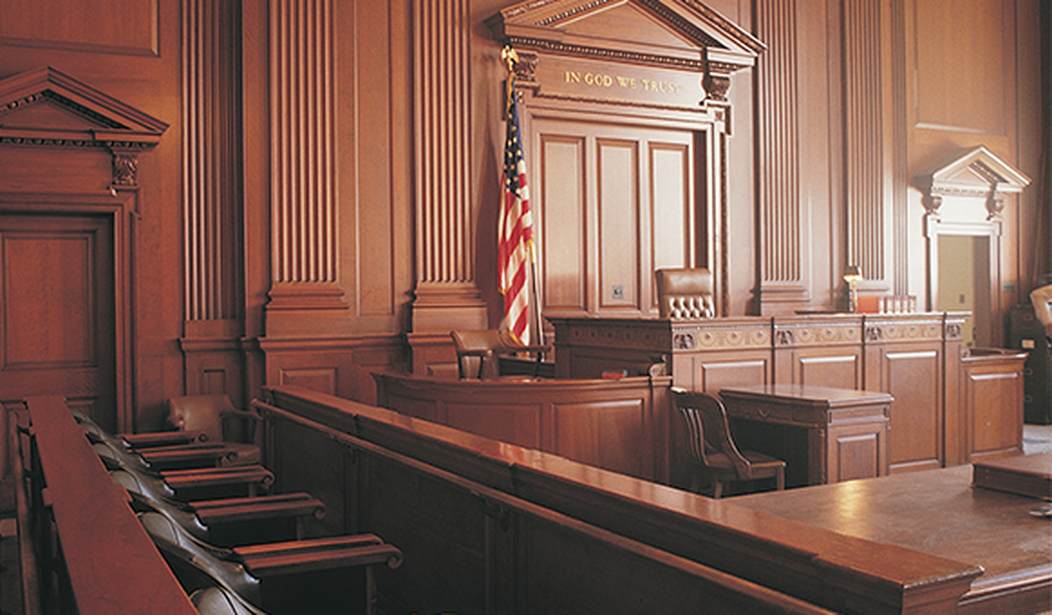Among the many anti-gun bills recently signed by California Gov. Gavin Newsom was a measure aimed at preventing pro-Second Amendment groups and gun owners from challenging any of the state’s restrictions on the right to keep and bear arms by forcing plaintiffs to pay damages and attorneys fees if they lose any part of their case. Given the financial burden that would impose on gun rights groups and individual gun owners, you can imagine the chilling effect that the new law will have, and groups like the Second Amendment Foundation say the measure has already had an impact on their ability to pursue litigation against the state’s gun control regime.
The SAF, along with the Firearms Policy Coalition, San Diego County Gun Owners Political Action Committee, California Gun Rights Foundation, and several individual plaintiffs, are now asking the federal judiciary to throw out the new law, arguing that it’s a clear violation of the Constitution.
California’s effort to insulate state and local firearms regulations from legal challenges through Section 1021.11’s fee-shifting regime is unconstitutional in multiple respects.
First, Section 1021.11 is unconstitutional under the Supremacy Clause. The fee-shifting provision is preempted by Congress’s statutory scheme to enforce federal constitutional rights, including 42 U.S.C. §§ 1983 and 1988, which details when and under what circumstances attorney’s fees may be awarded in cases challenging unconstitutional state action. Section 1021.11 upends Congress’s regulation of fee awards by, among other things, purporting to change who may be considered a “prevailing” party entitled to fees.
Second, Section 1021.11 violates the First Amendment. The right to petition the government for redress of grievances includes “[t]he right of access to the courts,” which “is indeed but one aspect of the right of petition.” Cal. Motor Trans. Co. v. Trucking Unlimited, 404 U.S. 508, 510 (1972). The Supreme Court has long held that public interest litigation is a protected “form of political expression” that is essential to secure civil liberties, particularly for minority groups seeking to vindicate politically unpopular rights: “Groups which find themselves unable to achieve their objectives through the ballot frequently turn to the courts. . . . [U]nder the conditions of modern government, litigation may well be the sole practicable avenue open to a minority to petition for redress of grievances.” Nat’l Ass’n for Advancement of Colored People v. Button, 371 U.S. 415, 429 (1963).
Under the new California statute, however, turning to the courts to redress grievances against the state’s gun control laws could lead to bankruptcy for the plaintiffs… at least if judges decide in favor of the state.
The lawsuit also alleges that the state is engaging in viewpoint discrimination and violating the Equal Protection clause of the Constitution by applying this new double standard solely to litigation involving gun control laws; a move that the new lawsuit notes was a direct response to a Texas law aimed at abortion providers.
California adopted this fee-shifting scheme as a response to – and apparently in retaliation for – a similar fee-shifting scheme that Texas enacted in connection with abortion regulations. But tit-for-tat is not a rational or permissible justification for the classifications in this case. “[A] bare . . . desire to harm a politically unpopular group cannot constitute a legitimate governmental interest.” U.S. Dep’t of Agric. v. Moreno, 413 U.S. 528, 534 (1973). 10. Because SB 1327’s fee-shifting penalty is unconstitutional, Plaintiffs seek declaratory and injunctive relief to invalidate Section 1021.11 and enjoin its application.
Under the challenged provision, while gun rights groups like SAF and FPC can be forced to pay the state of California if they lose their lawsuit, the state cannot be forced to pay attorneys fees or damages if the gun control law that’s being litigated is found to be unconstitutional. It’s a “heads I win, tails you lose” proposition for the state and its anti-gun lawmakers.
“In its effort to silence any opposition to unconstitutional gun control laws,” said SAF founder and Executive Vice President Alan M. Gottlieb, “the California Legislature adopted this new statute which details when and under what circumstances attorney’s fees may be awarded in cases challenging those gun laws.
“Essentially,” he continued, “this new law is designed to suppress any defense of the Second Amendment in court by imposing standards that violate the First Amendment. The law upends Congress’s regulation of fee awards by, among other things, purporting to change who may be considered a ‘prevailing’ party entitled to fees. Simply put, the new law is unconstitutional, and it should not be allowed to stand.”
If it is upheld, it’ll be much more difficult to challenge unconstitutional laws; not just in California but in other blue states that will quickly adopt similar provisions. And sadly, given the Ninth Circuit Court of Appeals’ history in upholding gun control laws, it may very well take action from the Supreme Court before this particular California law is struck down. I hope that’s not the case, but given that the full Ninth Circuit has yet to declare any gun control law unconstitutional since the Heller decision was handed down in 2008*, I’m not optimistic.
*While individual district court judges and three-judge panels on the Ninth Circuit have found multiple California gun laws in violation of the Constitution, every one of those decisions was eventually mooted by an en banc review of Ninth Circuit judges.









Join the conversation as a VIP Member